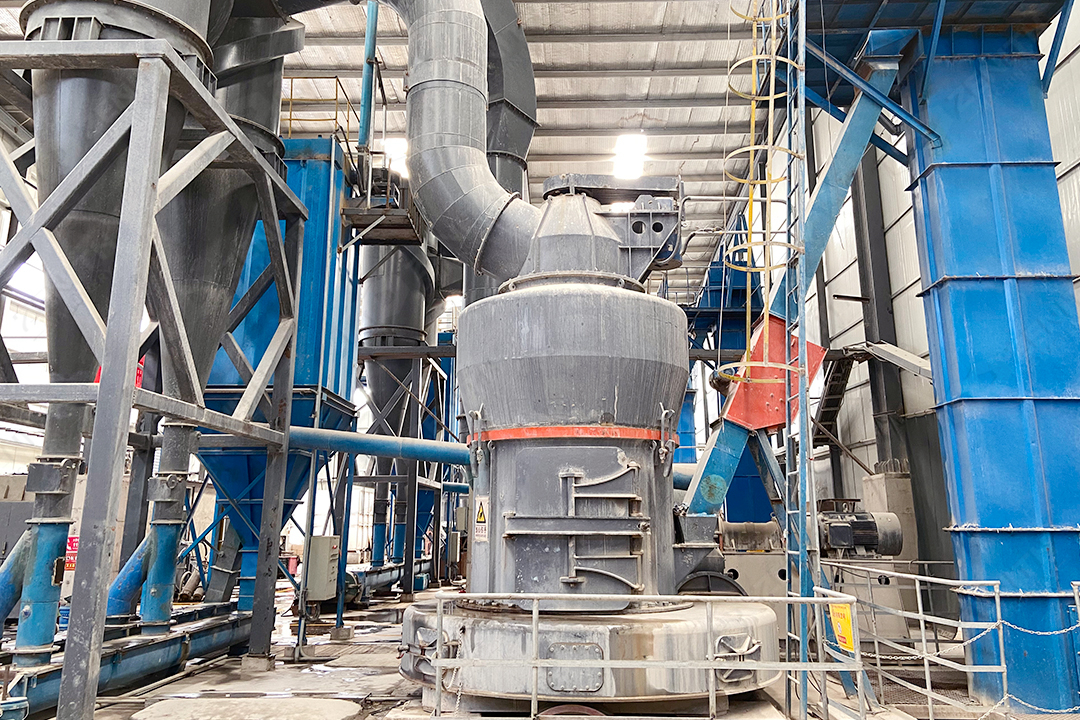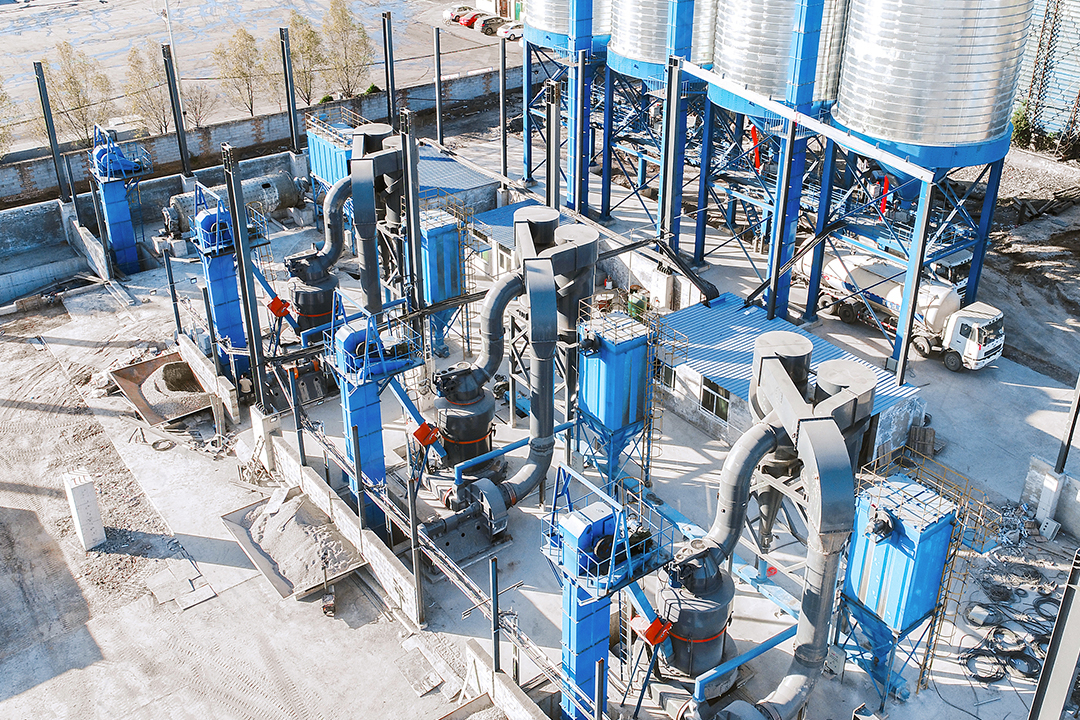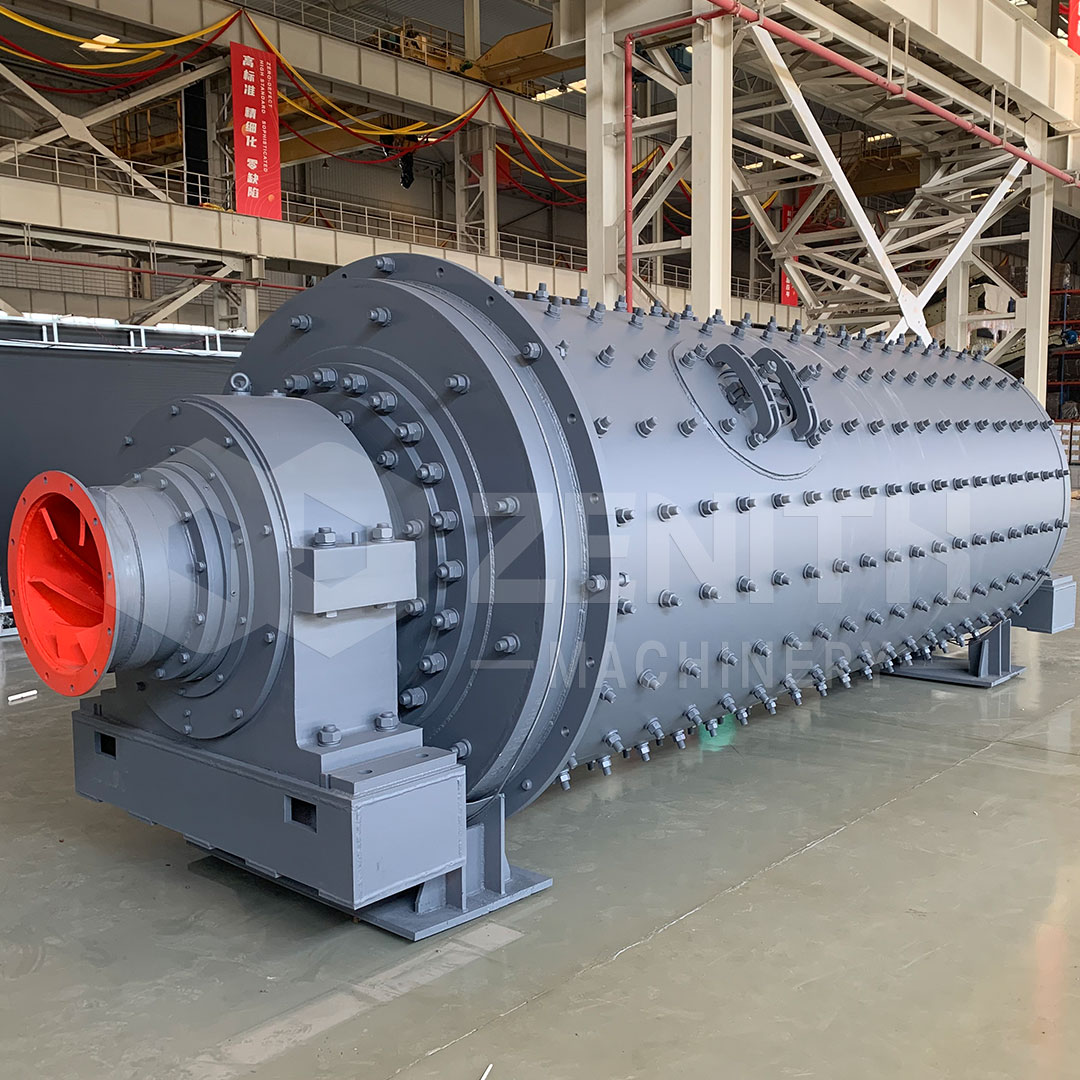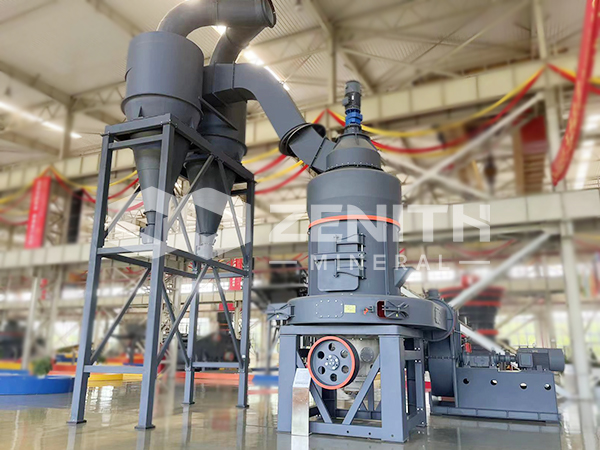轻质碳酸钙制粉设备工作原理
2025-11-05 16:34:57
Working Principles of Light Calcium Carbonate Powder Grinding Equipment
Introduction to Light Calcium Carbonate Processing
Light calcium carbonate, also known as precipitated calcium carbonate (PCC), is a versatile industrial mineral with applications spanning plastics, paints, rubber, paper, and construction materials. As a leading manufacturer of industrial grinding equipment, Shanghai Zenith Machinery has developed specialized machinery to meet the precise requirements of calcium carbonate processing across various fineness ranges.
Our equipment portfolio covers the entire spectrum of calcium carbonate processing needs, from coarse 1-3mm powders to ultrafine 3250 mesh micro powders. With ISO international quality system certification, European Union CE certification, and Customs Union CU-TR certification, our grinding solutions ensure consistent quality and performance for global customers across more than 180 countries.

Core Grinding Technologies for Calcium Carbonate
MTW European Trapezium Mill
The MTW series trapezium mill represents our advanced grinding technology for producing 80-400 mesh fine powder with capacities ranging from 3-22 T/H. This system operates on a sophisticated principle where crushed materials are fed into the main grinding chamber via variable frequency belt feeders. The ground materials are then transported by fan airflow to powder selectors for classification.
Qualified fine powder is separated as finished products in cyclone powder collectors, while coarse particles return for regrinding. The entire system operates under controlled positive and negative pressure conditions, ensuring optimal efficiency and environmental compliance through integrated pulse dust collectors.

LM Vertical Grinding Mill
For operations requiring continuous 24-hour running capability, our LM series vertical roller mills offer exceptional performance. The working principle involves a main motor driving the grinding disc through a reducer, with hot air introduced into the grinding chamber. Material fed to the disc center moves outward by centrifugal force, forming a material bed where inter-particle crushing occurs between the rollers and disc.
The LM mill's sealed operation under negative pressure prevents dust spillage, while its automated control system enables remote operation and minimal labor requirements. This makes it particularly suitable for large-scale calcium carbonate production plants requiring stable product quality and high purity output.
XZM Ultrafine Grinding Mill
When processing calcium carbonate to ultrafine specifications between 325-3250 mesh, our XZM series delivers exceptional performance. The working mechanism involves material feeding onto a rotating turntable where grinding rollers exert crushing force under centrifugal action. The ground material enters a classifier with adjustable rotor speed via VFD control, enabling precise fineness adjustment.
This system achieves D97 < 5 micron fineness in a single pass while consuming 70% less energy compared to conventional air-flow mills. The absence of rolling bearings and screws in the grinding chamber eliminates common failure points, ensuring reliable operation with minimal downtime.
_1762331697794.jpg)
Specialized Equipment for Specific Applications
LUM Ultrafine Vertical Grinding Mill
Our LUM series represents the pinnacle of ultrafine grinding technology, integrating German powder separation technology with Taiwanese roller technology. Specifically designed for high-value calcium carbonate applications in masterbatch, PVC, and artificial stone industries, this mill operates on a principle where material enters through a spiral feeder onto the grinding disc.
The main motor creates centrifugal force that spreads material evenly, while hydraulic adjustment systems enable quick maintenance of grinding components. The system's ability to operate under negative pressure with 30-50% energy reduction compared to conventional mills makes it an environmentally conscious choice for premium calcium carbonate production.
Hammer Mill for Coarse Powder Production
For coarse calcium carbonate powder in the 0-3mm range, our HM series hammer mills employ a unique working principle where rotors equipped with fixed hammers impact incoming material at high speed. The optimized cavity design ensures uniform particle size distribution, addressing traditional limitations of coarse powder mills.
This equipment has become essential for calcium carbonate applications in dry mortar, animal feed, and construction materials, offering high grinding ratios and exceptional wear resistance through manganese steel linings.
Technical Advantages and Operational Benefits
Across our equipment range, several consistent advantages emerge for calcium carbonate processing. Energy efficiency stands prominent, with our trapezium mills consuming 60% less energy than equivalent ball mills. The modular impeller adjustment systems enable quick fineness changes without major equipment modifications.
Occupying significantly less floor space than traditional ball mill systems, our grinding equipment reduces infrastructure investment while maintaining production flexibility. The high-efficiency impeller fans improve air induction efficiency from 62% to 85%, enhancing overall system performance and reducing operational costs.

Environmental Considerations and Compliance
All our calcium carbonate grinding systems incorporate comprehensive environmental protection features. Operating under controlled pressure conditions with integrated pulse dust collectors ensures compliance with international environmental standards. The sealed designs of our vertical mills prevent dust spillage, while vibration damping and noise reduction technologies create worker-friendly environments.
Our commitment to sustainable manufacturing extends beyond equipment design to complete system optimization, helping customers minimize their environmental footprint while maximizing production efficiency in calcium carbonate processing operations worldwide.
Frequently Asked Questions
What is the typical energy consumption of Zenith grinding mills for calcium carbonate?
Our MTW and MTM series trapezium mills consume approximately 60% less energy than traditional ball mills of equivalent capacity. The XZM ultrafine mill reduces energy consumption by 70% compared to air-flow mills and stirring mills.
How fine can Zenith equipment grind calcium carbonate?
Our equipment range covers from coarse 1-3mm powder to ultrafine 3250 mesh micro powder. The XZM series can achieve D97 < 5 micron fineness, while the LUM vertical mill produces powder between 325-2500 mesh.
What maintenance is required for these grinding systems?
Maintenance requirements vary by model. Our vertical mills feature hydraulic adjustment systems for easy roller maintenance, while the XZM mill's bearing-free grinding chamber design significantly reduces maintenance needs. Most systems allow quick replacement of wear parts.
Can the same equipment process different fineness requirements?
Yes, most of our mills feature adjustable fineness controls. The MTW and MTM series use modular impeller adjustment devices, while the XZM mill incorporates VFD-controlled classifiers for arbitrary fineness adjustment between 325-2500 mesh.
How does Zenith ensure environmental compliance?
All our grinding systems operate under controlled pressure conditions with integrated pulse dust collectors. Sealed designs prevent dust spillage, and negative pressure operation ensures compliance with international environmental standards including CE certification.
What is the typical installation space requirement?
Our equipment is designed for compact installation. The LM vertical mill occupies approximately 50% of the space required by equivalent ball mill systems, while maintaining similar or superior production capacity.
How automated are these grinding systems?
We offer varying levels of automation. The LM vertical mill features full automatic control with remote operation capability, while our Raymond mill incorporates intelligent control systems enabling labor-free operation and maintenance.
What materials besides calcium carbonate can these mills process?
Our equipment processes various non-metallic minerals including marble, limestone, talc, dolomite, barite, kaolin, and feldspar. Specific capabilities vary by model, with some specialized for particular material characteristics.
What is the typical service life of grinding components?
Service life depends on material abrasiveness and operating conditions. Our equipment uses high-quality wear-resistant materials, with hammer mills featuring manganese steel linings and important components manufactured from premium steel alloys.
Do you provide technical support for system optimization?
Yes, with overseas offices in more than 30 countries and a global service network covering 180+ regions, we provide comprehensive technical support, including system optimization, operational training, and maintenance services.









